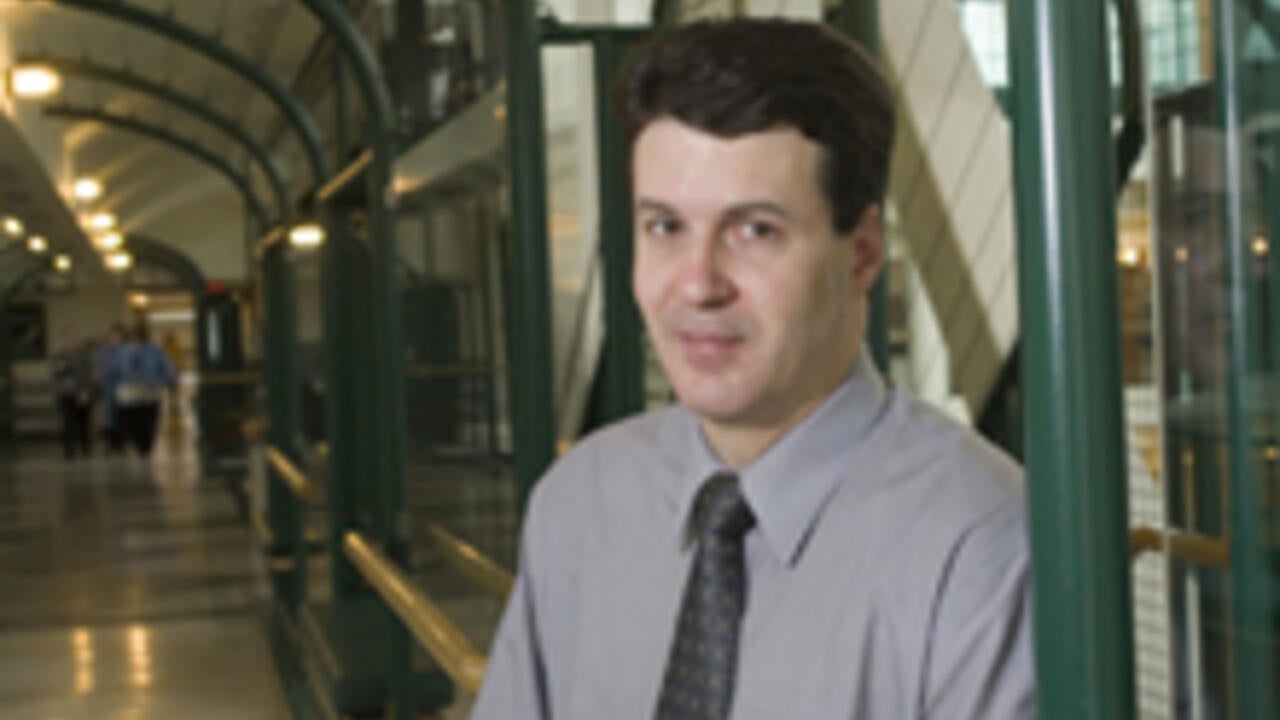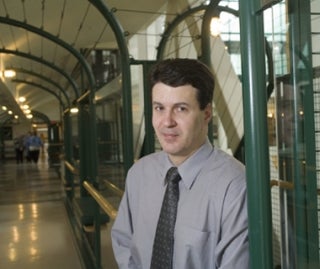
Waterloo alumnus named potential Nobel Prize winner
Dr. Stephen Scherer’s research will change the way modern medicine tackles genetic disorders, says Dean of Science

Dr. Stephen Scherer’s research will change the way modern medicine tackles genetic disorders, says Dean of Science
By Victoria Van Cappellen Faculty of Science A geneticist who graduated from the University of Waterloo with a degree in biology has made the list of scientists most likely to win a Nobel Prize this year.
A geneticist who graduated from the University of Waterloo with a degree in biology has made the list of scientists most likely to win a Nobel Prize this year.
Dr. Stephen Scherer, director of the Centre for Applied Genomics at Toronto’s Hospital for Sick Children, has been named a potential winner of the Medicine prize. He is one of 27 scientists and economists who appear on the 2014 edition of the list issued by Thomson Reuters.
“Stephen’s research contributions towards the field of genomics will change the way modern medicine tackles genetic disorders and disease,” says Terry McMahon, Dean of Science. “We are ecstatic, but certainly not surprised, that he is considered to be the forerunner for receiving this prestigious award. The Faculty of Science is extremely honoured and proud to call Stephen an alumnus.”
The organization has accurately picked 35 Nobel Prize recipients since they began the list back in 2002.
Scherer is best known for his work on decoding the DNA sequence of human chromosome 7 and demonstrating that accidental errors during DNA replication account for more variation in the human genome than anyone predicted.
Thomson Reuters singled out Scherer based on his citation record, which puts him among the most highly cited medical researchers in the world. Although the Nobel committee does not release the names of nominees, the Thomson Reuter’s study has served as an accurate sneak peak since its inception 12 years ago.
Since graduating from Waterloo in 1987, Scherer has maintained a close relationship with the Faculty of Science. He was awarded their first Faculty of Science Distinguished Alumni Award back in 2007 and presently serves on the Dean’s Advisory Council. Scherer returned to campus in 2011 as the keynote speaker for the TD Discovery Days in Health Sciences, where he spoke to high school students about careers in medicine and his research.
Scherer has published more than 470 papers which have been cited 43,000 times by other scientists.
In addition to being one of Canada’s best known researchers, Scherer is active in public outreach and education programs. He has presented more than 300 lectures worldwide and acted as scientific consultant for two scientific documentaries: Cracking the Code, the Continuing Saga of Genetics and the Gemini Award-winning, After Darwin.
The winner of the Noble Prize in Medicine will be announced October 6th.

Read more
The Government of Canada announces funding to support research in food policies and medical devices

Read more
Here are the people and events behind some of this year’s most compelling Waterloo stories

Read more
Meet five exceptional Waterloo graduate students crossing the convocation stage as Class of 2025 valedictorians
The University of Waterloo acknowledges that much of our work takes place on the traditional territory of the Neutral, Anishinaabeg, and Haudenosaunee peoples. Our main campus is situated on the Haldimand Tract, the land granted to the Six Nations that includes six miles on each side of the Grand River. Our active work toward reconciliation takes place across our campuses through research, learning, teaching, and community building, and is co-ordinated within the Office of Indigenous Relations.